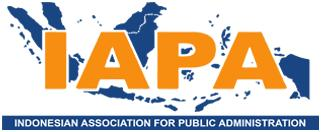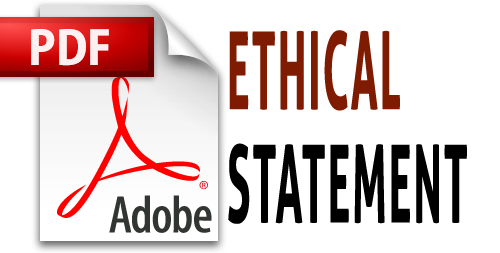Dynamic Governance Capabilities in Regional Budget Policy Formulation to Create Agile Bureaucracy During Covid-19
Abstrak
This pandemic period is the most difficult period for local governments, especially the pandemic has been going on for almost one fiscal year. The sudden arrival of the pandemic has forced the government to do budget refocusing. This study specifically wants to describe the dynamic governance capabilities of local governments in formulating regional budget policies during the pandemic or after the Covid-19 outbreak ends, so that in the future fiscal year, agile bureaucracy will be built in the regions. Another objective of this study is to describe the fundamental problems that occur in the budget formulation process and offer guidance related to how to solve problems in the budget preparation cycle for the 2021 fiscal year. The focus of the study is on the process of making budgeting policies in the regions, not on fiscal policies. This study uses a qualitative descriptive method, with data sources entirely obtained through secondary sources, so that this study can be called a literature research. The results of this study found that within the framework of thinking a head, local governments must be able to applicate using existing budgetary flexibility and exceptional spending procedures to fund first, so that the programs and activities to be carried out can be more flexible. Another thing that was found was the accelerating revision of regional finance regulation to secure a budget for the response through. During this pandemic, local governments continue to carry out planned programs and activities, so that regional budget absorption can be achieved and the economic life of the community can continue to develop.
Kata Kunci
Teks Lengkap:
PDFReferensi
Akwei, C., Peppard, J. and Hughes, P. (2006) The process of creating dynamic capabilities: a grounded theory approach’, in The Practice of Dynamic Capabilities, The Organizational and Knowledge Network Workshop, pp. 221– 235.
Anwar, R. (2011) ‘Development of dynamic capabilities of education service policy processes in Jembrana, Bali’, Bisnis & Birokrasi Journal, 17(3).
Barroy, hélène. (2020). How To Budget For COVID-19 Response? A Rapid Scan Of Budgetary Mechanisms In Highly Affected Countries. https://www.who.int/docs/default-source/health-financing/how-to-budget-for-covid-19-english.pdf?sfvrsn=356a8077_1
Barroy, Hélène. et al. (2020) How to budget for COVID-19 response? A rapid scan of budgetary mechanisms in highly affected countries. Access from https://www.who.int/docs/default-source/health-financing/how-to-budget-for-covid-19-english.pdf?sfvrsn=356a8077_1
Blasio, E. D., & Selva, D. (2016). Why choose open government? Motivations for the adoption of open government policies in foureuropean countries. Policy & Internet, 8(3), 224-247. doi:10.1002/poi3.118
BPS-Statistics Indonesia. (2020). Financial Statistics of Province Government 2017-2020.
Curristine, Teresa. et al. (2020). Budgeting in a crisis: guidance for preparing the 2021 budget. IMF-Fiscal Affairs; Special Series on COVID-19
Darmi, T. (2018). Locally-generated revenue as a capacity parameters of new regional autonomy management. JKAP (Jurnal Kebijakan Dan Administrasi Publik), 22(1), 1. https:// doi.org/10.22146/jkap.24870
Dewi, Nyoman Ayu Wulan Trisna. (2019). Evaluasi Penerapan Performance Based Budgeting pada Pemerintah Provinsi di Indonesia. Jurnal Ilmiah Akuntansi • Vol. 4, No. 2, Hal: 201-222
Glicksman, Robert L. and Markell, David L. (2016). Dynamic Governance In Theory And Application. Arizona Law Review VoL. 58:563. download from https://arizonalawreview.org/pdf/58-3/58arizlrev563.pdf
Hallsworth, Michael with Simon Parker and Jill Rutter. (2011). Policy making in the real world evidence and analysis. Institute for Government, download from website at www.instituteforgovernment.org.uk/policy
Hasan, Misbah. (2020). Pandemi: tantangan kebijakan dan akuntabilitas anggaran “ketegangan pusat-daerah. Materi Webinar Bongkar Pasang Postur APBN-APBD dalam Penanggulangan Covid-19 Untuk Merawat Stabilitas Sistem Keuangan Negara. Jakarta. https://rancakpublik.or.id/download/pandemi-tantangan-kebijakan-dan-akuntabilitas-anggaran-ketegangan-pusat-daerah.
Hasibuan G. L, Dermawan D, Ginting HS et.al. (2020). Allocation of covid-19 epidemic funding budgets in Indonesia. International Journal of Research and Review. 7(5): 75-80.
Indahsari, Charity Latanza.,at all. (2020) New Public Management (NPM) as an Effort in Governance. Jurnal Manajemen Pelayanan Publik. Vol 3 No.2 Page: 73-129
Idem. Marc Robinson and Duncan Last. (2009). ‘A Basic Model of Performance-Based Budgeting’. International Monetary Fund. Technical Notes and Manuals 09/01.
Kasim, Azhar, dkk. (2015). Merekonstruksi Indonesia: sebuah perjalanan menuju dynamic governance. Jakarta: PT. Kompas Media
Latif, Arsan. (2020). Kebijakan refocusing dan realokasi APBD dalam rangka percepatan penanganan covid-19. Dokumen Paparan oleh Direktur Perencanaan Anggaran Dearah Kementrian Dalam Negeri, Direktorat Bina Keuangan Daerah. http://www.djpk.kemenkeu.go.id/wp-content/uploads/2020/07/KEBIJAKAN-REFOCUSING-DAN-REALOKASI-APBD.pdf
Marijn Janssen and Haiko van der Voort. (2020) Agile And Adaptive Governance In Crisis Response: Lessons From The COVID-19 Pandemic, International Journal of Information Management, Doi: https://doi.org/10.1016/j.ijinfomgt.2020.102180
Muis. Afni Regita Cahyani (2020). Transparansi Kebijakan Publik Sebagai Strategi Nasional Dalam Menanggulangi Pandemi Covid-19. SALAM; Jurnal Sosial & Budaya Syar-i Vol. 7 No. 5, pp. 439-454, DOI: 10.15408/sjsbs.v7i5.15317
Neo, Boon Siong & Geraldine Chen. (2007). Dynamic Governance – Embedding Culture, Capabilities And Change In Singapore. World Scientific Publishing Co. Pte. Ltd
Oates, WE. (1999). An Essay on Fiscal Federalism', Journal of Economic Literature, vol. 37, no. 3, pp. 1120-1149.
OECD. (2020). Initial budget and public management responses to the coronavirus (COVID-19) Pandemic in OECD Countries. Public Governance Directorate Public Governance Committee GOV/PGC 14.
Pettus, Michael L. et al, (2007). A Theory Of Change In Turbulent Environments: The Sequencing Of Dynamic Capabilities Following Induestry Deregulation, URL: http://www.business.uiuc.edu/Working_Papers/papers/07−0100.pdf, 2007, p. 5-7.
Purwanto, Erwan Agus. (2019). Kebijakan Publik Yang Agile Dan Inovatif Dalam Memenangkan Persaingan Di Era VUCA (Volatile, Uncertain, Complex And Ambiguous) Pidato Pengukuhan Jabatan Guru Besar Ilmu Kebijakan Publik pada Fakultas Ilmu Sosial dan Ilmu Politik Universitas Gadjah Mada
Putra, Rahmatullah Muhajir. (2020). Public Information Governance Through The Official Website to Improve The Accountability of Regional Budget Management: Case Study Jember Official Website. Regional Dynamic: Journal of Policy and Business Science, [S.l.],v1,n1,p.14-28, doi: https://doi.org/10.19184/rdjpbs.v1i1.17506.
R. Djalante. (2020) Review And Analysis Of Current Responses to COVID-19 in Indonesia: Period of January to March 2020. Progress in Disaster Science (6). p;1-9 Doi: 10.1016/j.pdisas.2020.100091
Rozi, Fachrur. At.al. (2020). Langkah Strategik Untuk Menjaga Stabilitas Sistem Keuangan Negara Dalam Penanggulangan Covid-19. Policy Brief, Rancak Publik.
Rulinawati. (2020). Craftingagile Bureaucracy: Transforming Work Ethics Of Civil Servants And Organisational Culture Of Bureaucracy In Indonesia. International Journal of Innovation, Creativity and Change, 12 (11) p. 692-714 www.ijicc.net
Serpa, S., & Ferreira, C. M. (2019). The Concept Of Bureaucracy By Max Weber. International Journal of Social Science Studies, 7(2), 12. p; 12-18 doi:10.11114/ijsss.v7i2.3979
Sholiha, Nasyika Fitriarifahrul., at all. (2021). The SWOT Analysis of Policy Implementation on Competence Development at Bandung Regency. Jurnal Manajemen Pelayanan Publik. Vol 4 No.2 Page: 128-137
Sungho Park and Craig S. Maher (2020) Government Financial Management And The Coronavirus Pandemic: A Comparative Look At South Korea And The United States. American Review of Public Administration Vol. 50(6-7) 590–597 DOI: 10.1177/0275074020941720
Xueliana, L., & Lu, Y. (2016). The Implications Of State Governance For Effective Global Governance. Social Sciences in China, 37(4), 175-185. doi:10.1 080/02529203.2016.1241504
Yusuf, Nurjannah (2020) - Fiscal Decentralization Policy In Improving The Regional Economy: A Spatial Econometric Approach. JKAP (Jurnal Kebijakan Dan Administrasi Publik), 24(1), https://doi.org/10.22146/jkap.54803
DOI: https://doi.org/10.24198/jmpp.v5i1.34117
Refbacks
- Saat ini tidak ada refbacks.
Jurnal Manajemen Pelayanan Publik Indexed By:



This work is licensed under a Creative Commons Attribution-ShareAlike 4.0 International License.


















21.png)



.png)